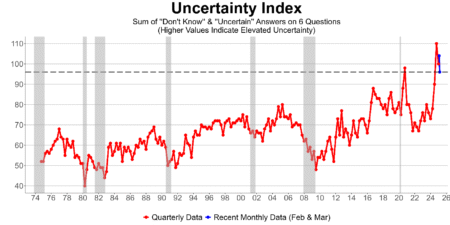Jason Richmond, Founder and Chief Culture Officer of Ideal Outcomes, Inc. Author of Culture Ignited: 5 Disciplines for Adaptive Leadership.
A colleague of mine decided to test one of the leading generative AI companies. He simply asked, “What do you know about me?” In less than a split second, he was presented with a stunning profile. Some of it was spot-on. Some of it was flattering. But it was also riddled with errors.
The AI system, which shall remain nameless, told him he’d been married to Elizabeth for 50 years, had two daughters and was passionate about golf. He didn’t waste any time telling the system that he wasn’t a bigamist and that his wife of 18 years, who wasn’t named Elizabeth, would not appreciate hearing about this other woman. He also didn’t have two daughters, and he was absolutely not a golf enthusiast. Furthermore, his date and place of birth were way off.
The chatbot responded instantly, profusely apologetic, and offered to make the necessary corrections. It was the beginning of a fun, engaging, humorous and seemingly empathetic conversation. It was also a little scary.
It brought to mind a recent conversation with members of my team about the way AI is beginning to dominate the workplace and whether our reliance on it could diminish our emotional intelligence (EI), which refers to the ability to recognize, understand and manage our emotions.
Experts like Daniel Goleman, author of Emotional Intelligence: Why It Can Matter More Than IQ, argue that EI is a key differentiator in leadership and relationships. Yet, as AI automates and mediates interactions, there’s a risk of losing the attributes that define our humanity, such as self-awareness, self-regulation, empathy and social skills. AI excels at data-driven efficiency but lacks the capacity for genuine emotion.
Overreliance on AI tools—think auto-generated emails or chatbots—can dull our sensitivity to emotional nuance if we’re not careful.
So, what can managers do to ensure AI enhances rather than diminishes EI in the workplace?
Stay self-aware.
Self-awareness is the bedrock of EI, and it starts with understanding how AI shapes your emotions. Are you letting algorithms dictate your choices, from playlists to news feeds, without checking in with your own feelings? Managers must become acutely aware of the need to maintain personal connections. Amit Ray, a pioneer in compassionate AI, is often attributed with saying, “As more and more artificial intelligence is entering into the world, more and more emotional intelligence must enter into leadership.”
Prioritize human interaction.
Design AI tools to complement, not replace, human-to-human collaboration. For example, use AI to handle repetitive tasks (like data analysis or scheduling) while reserving time for team discussions, brainstorming and relationship-building. This keeps employees engaged in emotionally intelligent activities rather than becoming isolated by over-reliance on tech.
Train employees on EI.
Offer workshops or training that pair technical AI literacy with EI development. Teach staff how to interpret AI outputs with empathy—say, using customer data to personalize service rather than just optimize metrics. This reinforces that AI is a tool to support human connection, not a substitute for it.
Encourage emotional check-ins.
AI can’t gauge team morale or emotional burnout. Managers should regularly check in with employees—through one-on-ones or team meetings—to build trust and openness. Ask questions like, “How are you feeling about your workload?” or, “What’s been challenging lately?” This counters the risk of AI-driven efficiency overshadowing emotional well-being.
Leverage AI to enhance empathy.
Use AI to provide insights that boost EI. For instance, sentiment analysis tools can flag customer frustrations, prompting staff to respond with greater care. Managers can model this by showing how AI data informs thoughtful decisions—like adjusting policies based on employee feedback trends—rather than cold automation.
Set boundaries.
Limit AI’s role in areas requiring nuanced emotional judgment, such as conflict resolution or performance reviews. Managers should retain the final say in these domains to ensure human sensitivity guides outcomes. Communicate clearly to teams that AI supports, but doesn’t dictate, decisions impacting people.
Practice self-regulation.
AI’s lightning-fast responses can breed impatience when human interactions don’t match its pace, but don’t let its efficiency dictate human behavior. Pause and breathe. Use it to offload repetitive tasks and preserve your emotional bandwidth for meaningful exchanges.
Encourage a culture of reflection.
Encourage employees to step back from AI-driven workflows and reflect on their emotional responses. Simple practices—like journaling or debriefing after big projects—can maintain self-awareness. Managers can lead by example by sharing how they balance tech reliance with personal intuition.
Monitor and adjust AI’s impact.
Regularly assess how AI tools affect team dynamics. Are people less communicative? More stressed? Gather feedback and tweak implementations to preserve EI. For instance, if an AI chatbot reduces customer-facing roles, retrain staff for roles requiring deeper human engagement, like problem-solving or relationship management.
The Human Edge
AI may mimic empathy (like the way it responded to getting my colleague’s personal details wrong) but it can’t feel it. By embedding the steps outlined above, managers can harness AI’s efficiency while safeguarding the emotional core of their teams. It’s about using tech to free up time and mental space for what matters most: human connection.
In the end, the anecdote of my colleague’s encounter with an AI that churned out a wildly inaccurate, yet oddly charming, profile underscores a broader truth: AI, for all its speed and sophistication, remains a flawed mirror of humanity. It can dazzle us with its capabilities and even feign empathy, but it cannot replicate the depth of EI that defines our relationships and leadership.
As AI continues to weave itself into the fabric of our workplaces, the challenge for managers is clear: Harness its power to amplify efficiency while fiercely guarding the human edge. By staying self-aware, prioritizing connection and embedding EI into our teams, we can ensure AI serves as a tool for enhancement, not a substitute for the irreplaceable nuances of the human spirit.
Forbes Business Council is the foremost growth and networking organization for business owners and leaders. Do I qualify?
Read the full article here











